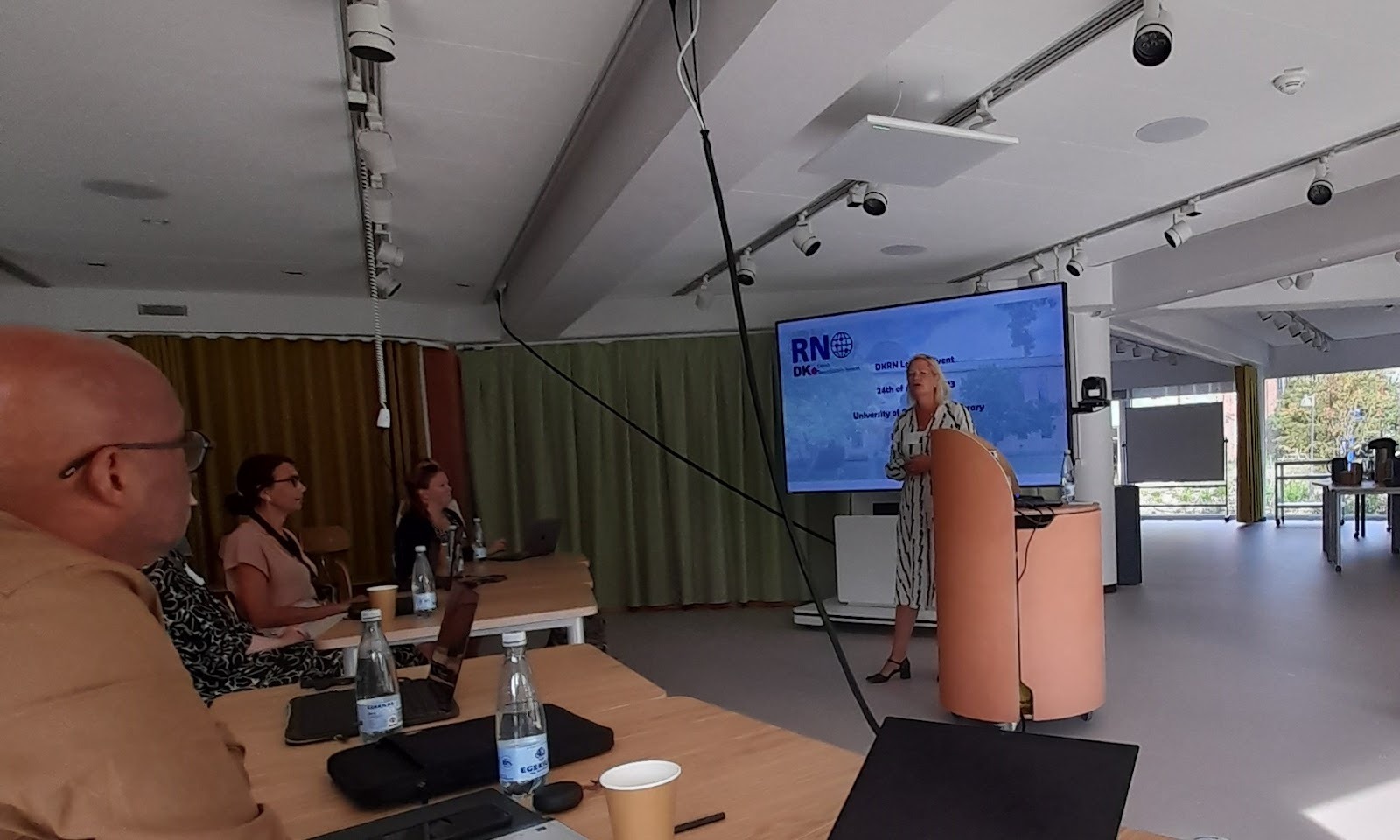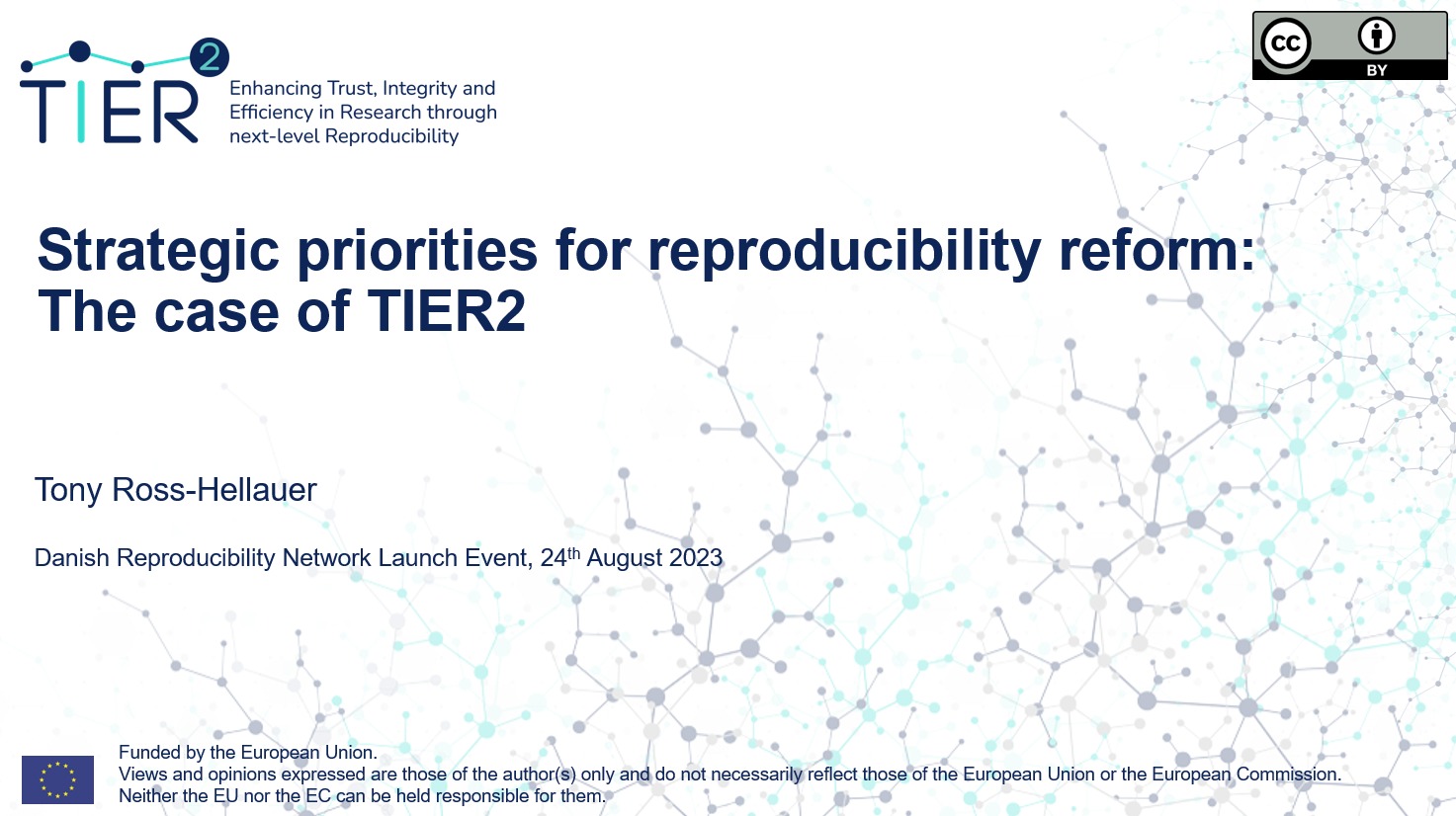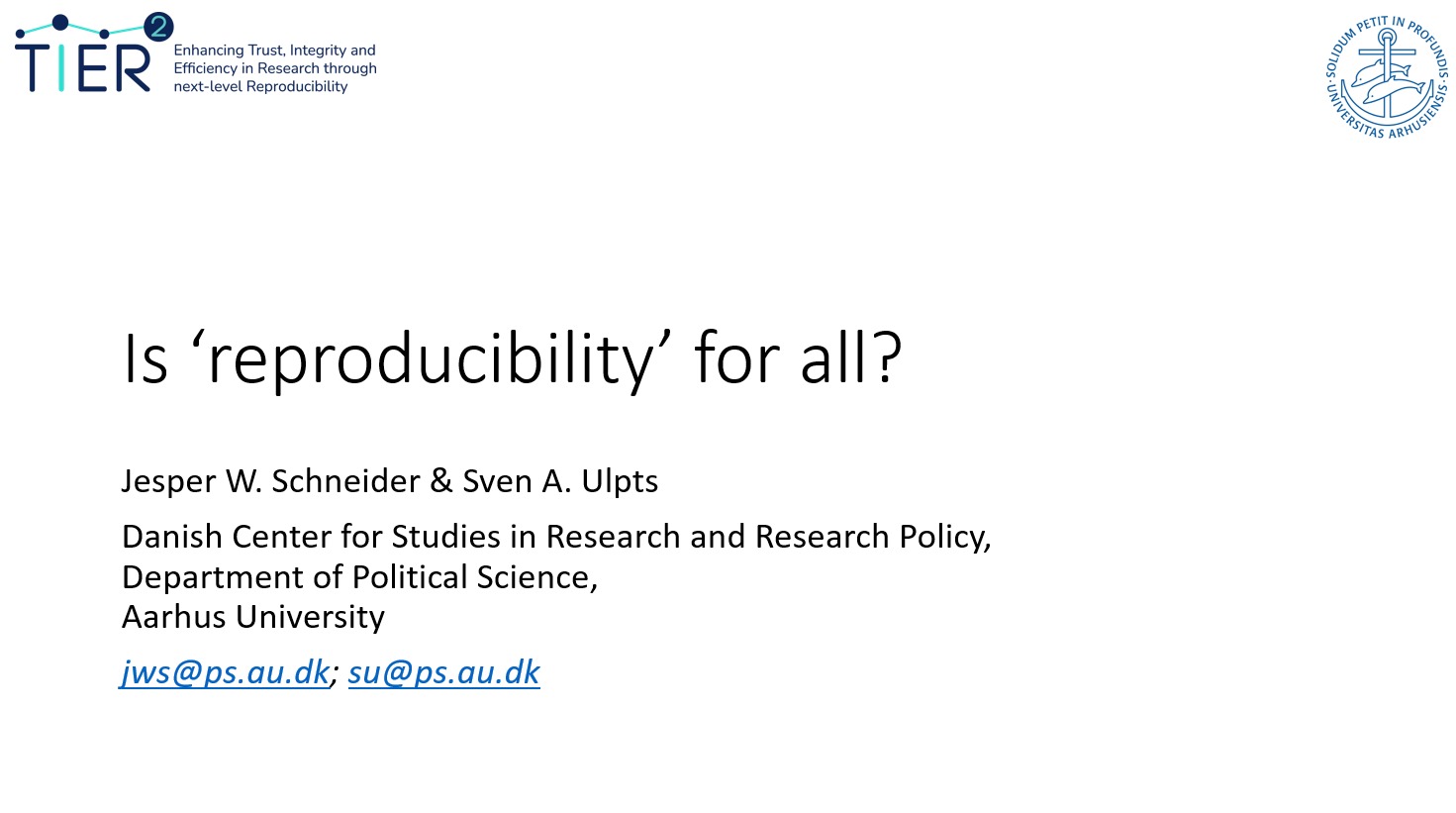TIER2 welcomes the Danish Reproducibility Network
The new Danish Reproducibility Network (DKRN) was officially launched at an event in Copenhagen on 24th of August. DKRN is now part of the growing international network of Reproducibility Networks, peer-led consortia which work at a national level to promote, facilitate and educate about open, reproducible and robust research through collaboration on projects and events. The packed programme was bookended by two invited talks from members of TIER2, where our ongoing work was discussed.

Snippet from the event
The event was opened by Kira Stine Hansen, Vice Director at Denmark’s Royal Library, following which TIER2 coordinator Tony Ross-Hellauer delivered his keynote talk “Strategic priorities for reproducibility reform: The case of TIER2”. Tony discussed where research communities should focus their efforts to maximise reproducibility in efficient and equitable ways. Using the TIER2 project as an example, the talk touched upon (inter alia) the need for more nuanced understanding of the role/relevance of reproducibility across diverse kind of research, systematised evidence on what works in which contexts, and the importance of joint action for capacity-building at all levels.

Slides for Tony Ross-Hellauer’s talk (CC BY)
In the closing talk “Is reproducibility for all?”, Jesper Wiborg Schneider (Aarhus University) presented work he and Sven Ulpts are doing in TIER2 on the meanings and implications of reproducibility across diverse research contexts. The talk began by touching on “reproducibility”, “open science” and “meta-science” as movements and the challenges of enforcing standards and norms upon different epistemic communities. Jesper then further discussed the jungle of definitions of reproducibility/replication and finally outlined a framework he and Sven are working on that tries to encapsulate epistemic diversity as knowledge production modes and hopefully will be able to clarify in which contexts “reproducibility” is relevant, and if so how “feasible” it is and what should be expected of it.

Slides for Jesper Wilborg Schneider’s talk (CC BY)
The programme also featured two talks with reflections on building a Reproducibility Network as a nation-wide community. Agata Bochynska (University of Oslo) presented insights gained from her involvement with the Norwegian Reproducibility Network (NORRN), illustrating how it evolved from a small, local group into a larger national network encompassing multiple institutions. Etienne Roesch (University of Reading, UK) presented experiences building the first Reproducibility Network, UKRN, focusing especially on how current projects see a growing emphasis on training and facilitating exchange of best practices. The talks were hugely instructive on the issues involved in fostering such networks, and directly relevant for TIER2 where expansion of the RNs is a key topic (for example via our recent call to support new RNs in EC “widening participation” countries).
Finally, an afternoon session on the intersections of reproducibility and Open Science saw talks from:
-
Loek Brinkman (Dutch National Centre of Expertise and Repository for Research Data) on the possible synergies between RNs and the complementary network of Open Science Communities
-
Birte Christensen Dalsgaard (Aarhus University) on the ways in which the growing standards, infrastructures and support services for FAIR (findable, accessible, interoperable, reusable) research objects help foster increased reproducibility
-
Lorna Wildgaard and Katarina Smitt Engberg (Copenhagen University Library) on the ways in which institutional research support services can empower Open Science and reproducibility.
The event had high attendance both in-person and online, and the buzzing conversations in the coffee and lunch breaks, as well as in a final session for group discussions, showed the enthusiasm and collaborative spirit already present within Denmark to make progress on all these issues.
TIER2 wishes DKRN every success!
